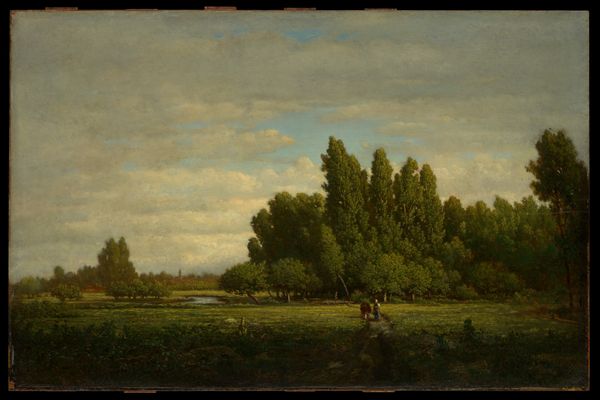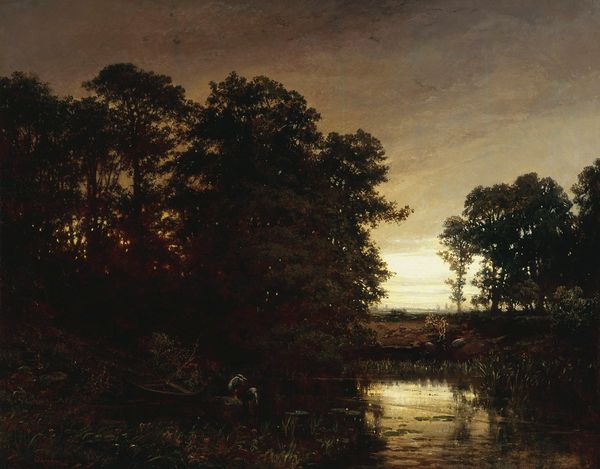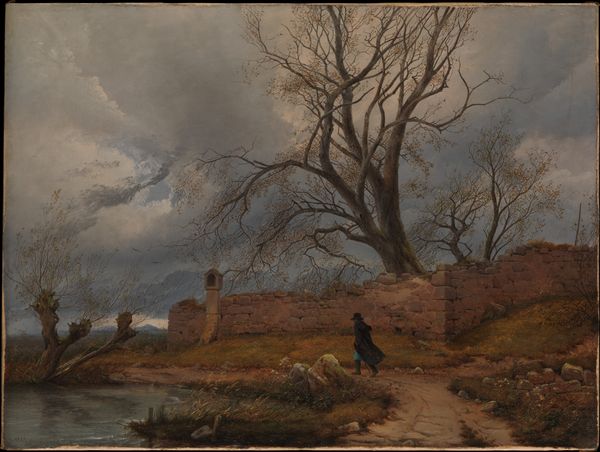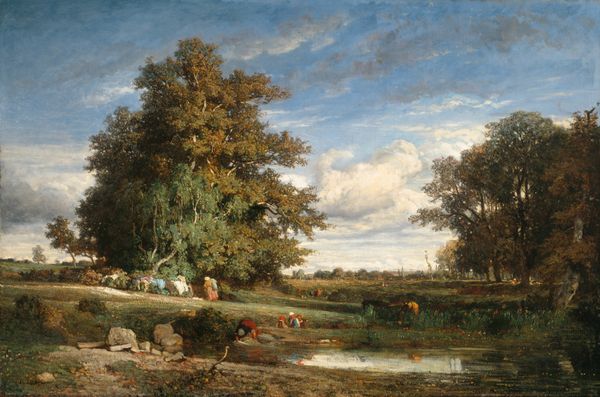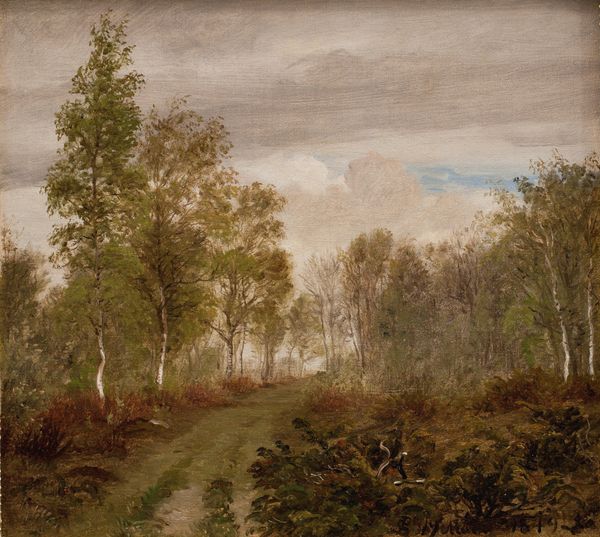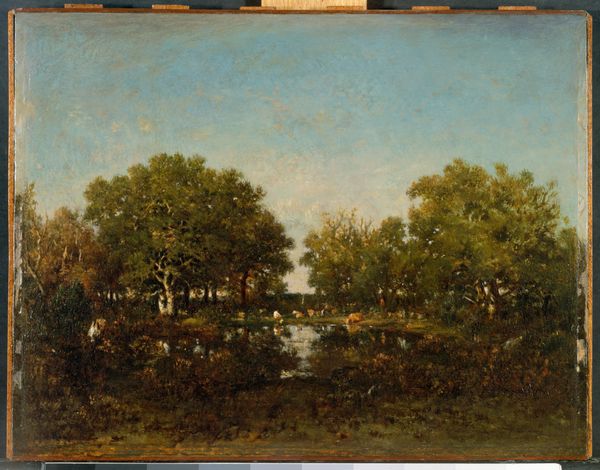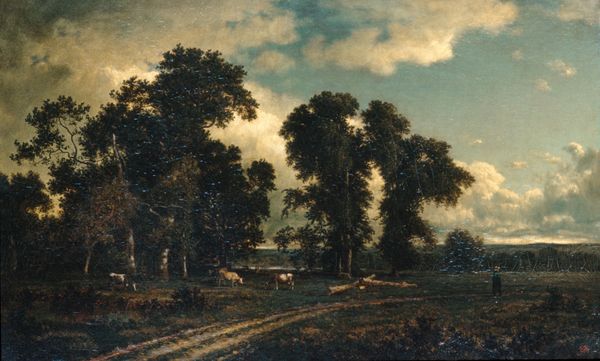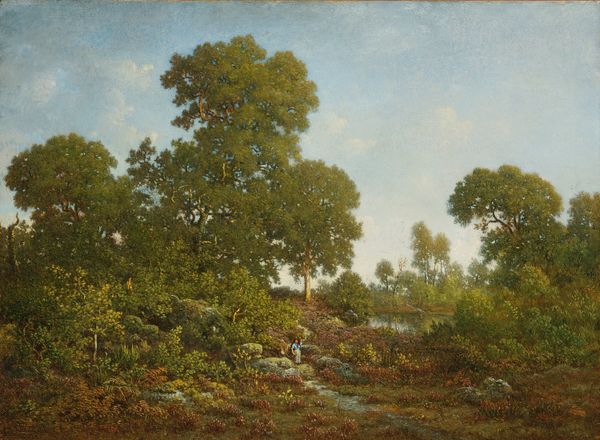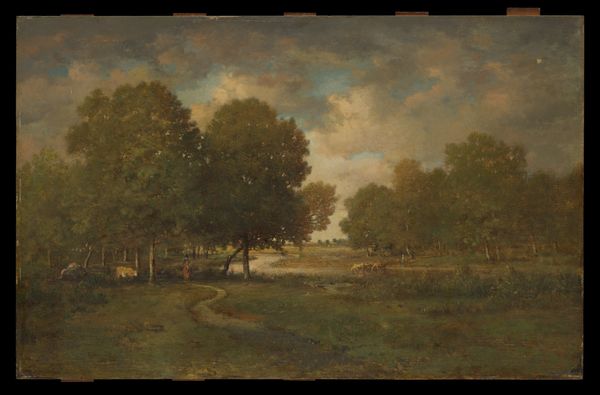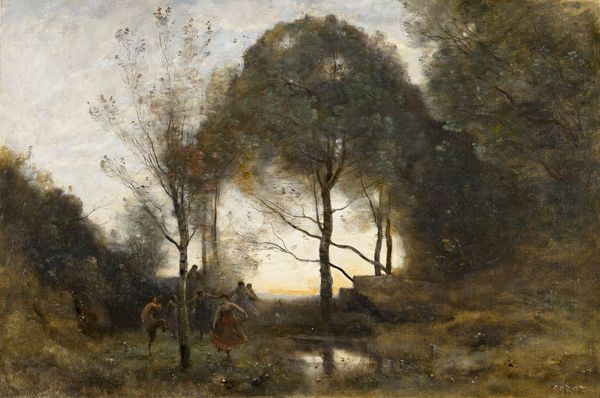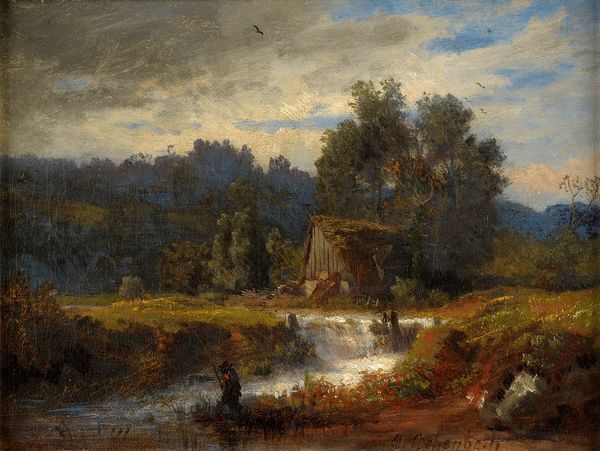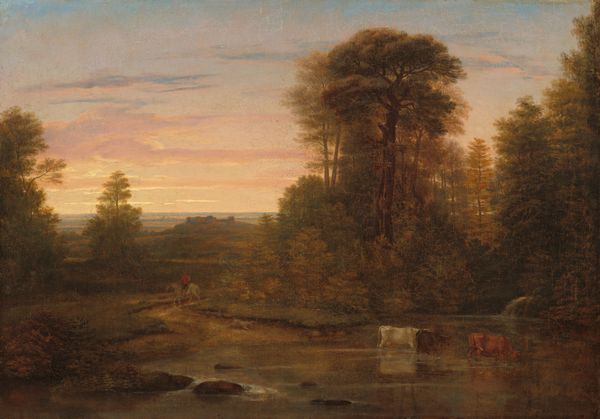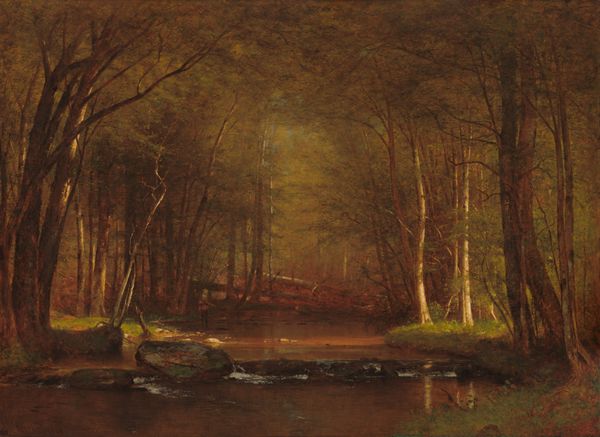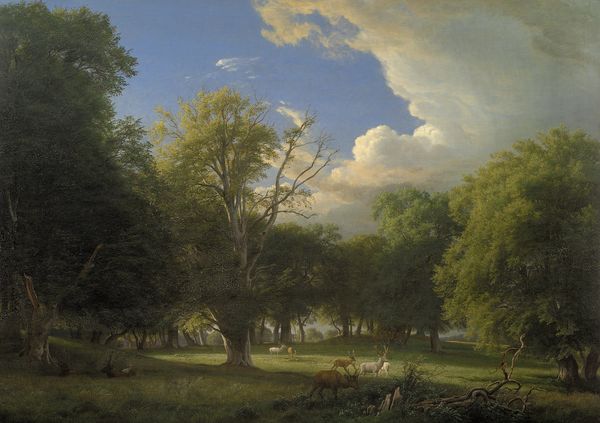
Dimensions: 24 x 45 in. (61 x 114.3 cm)
Copyright: Public Domain
Curator: Jervis McEntee's 1875 oil on canvas, "Saturday Afternoon," captures a quiet, melancholic scene by a pond. Editor: There's a somber stillness that permeates the entire composition, despite the figures populating the landscape. A muted palette reinforces this feeling—the grays and browns really set a subdued tone. Curator: McEntee, associated with the Hudson River School, was deeply concerned with capturing the transient beauty of nature. Notice the details – the almost bare trees, the damp earth – that mark a moment of transition, probably early autumn. It speaks volumes about material engagement with landscape, I think. We’re dealing with tempera here, applied "en plein air," meaning outdoors—quite rare in McEntee's production. It reveals something essential about this image: labor, nature, perception... Editor: Absolutely. The scene, while seemingly bucolic, prompts questions about leisure, gender and labor. What does this Saturday afternoon mean to these various figures in the landscape? We see a possible division of labor amongst the figures: some seemingly playing and some spectating from the pond’s edge. We must think, whose labor and what form does it take to enjoy a "Saturday Afternoon"? It pushes me to wonder about those excluded from such seemingly tranquil scenes, like domestic workers inside at nearby houses. Curator: His commitment to working "en plein air" reflects this period's desire for direct experience. Think of it as a specific act. Painting itself becomes a form of labor, a direct transaction between artist, materials, and landscape, almost mirroring the transactions you just discussed. Editor: These rural scenes were charged with an imagined cultural capital too. The appeal of such locations, which, in truth, offered meager opportunities of upward mobility, reinforced divisions between classes. Even the palette might evoke specific feelings: dark colors and indistinctness are interpreted to be indicative of a time of recession. I suppose the appeal and value we ascribe to McEntee is not necessarily the appeal or values held by a person depicted. Curator: The artist presents an interaction with the surrounding setting. Considering what we discussed about value, landscape offers McEntee opportunity as both a physical place and as something mediated by both vision and facture. This piece speaks about how it’s crafted—the kind of aesthetic experience possible only because he and others are implicated in material production and value systems. Editor: I appreciate the nuances embedded in what at first seems like a placid landscape scene. Considering it closely with attention to its broader implications offers opportunity for crucial conversations about identity, labor, leisure and—ultimately—the construction of social hierarchies.
Comments
No comments
Be the first to comment and join the conversation on the ultimate creative platform.
